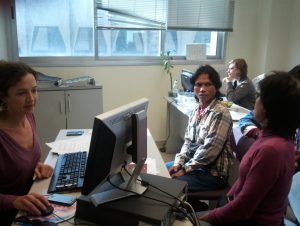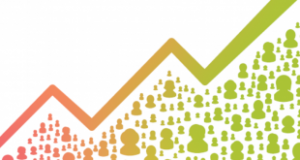Decent Work and Economic Growth


SDG 8 - The Burgeoning Israeli Economy
Necessity is the mother of invention, and if any country was in need, it was Israel. Lacking in natural resources and saddled with an arid climate, Israel had to find other ways to provide for its citizens. The development of drip irrigation and desalination technologies not only become saviours for Israel, but are sold to other countries as well. Along the same vein, the wars Israel was thrown into led the nation to develop cutting edge technologies that ultimately morphed into the technologies that infiltrate Israeli civilian society. Now Israel has a high-tech culture as a growth engine for economic growth.
Another factor playing into Israel’s phenomenal economic evolvement is immigrant absorption and population growth. Israel’s current unemployment level is the lowest it has been in decades – at 4.4% it is even one of the lowest unemployment rates in the world. At the founding of the Israeli nation the population stood at 806,000. Today it is at 8.84 million, including the absorption of 3.2 million immigrants over the years. Israel’s immigrants, with their distinct languages and cultures, creates a distinct potential for innovation.


But economic growth didn’t happen overnight. In the 50s, food, oil and other resources had to be rationed, as the economy began to grow by about 13% each year until about 1955, and then just under 10% in subsequent years, into the 1960s. Heavily dependent on donations from wealthy Jews abroad, and on German reparations for Nazi crimes, the government began to provide jobs and set up infrastructure projects.
In the beginning of Israel’s existence, there were three main avenues of industrial output: agriculture, textiles, and chemicals. With the expansion of higher education; the integration of new immigrants into the workforce; a continuous effort to build trading relationships across the globe, and government support for R&D, however, Israel quickly transitioned into a modern economy.
The inflation of the 1970s and 80s however, set Israel back. In 1973, the Yom Kippur war put most of the labor force into the military effort, and businesses ground to a halt. The government was in debt and taxes were raised. Still, there were a few initiatives that sprang up in the 70s as part of investment companies such as Discount Investments and Leumi Investments, who underwrote several entrepreneurs. Companies such as Elscint, Nice, Efrat, Elron and others were bolstered with the help of the capital given to them by these investment companies. The BIRD binational fund was another way for Israeli entrepreneurs to raise capital: they would receive $1 million for joint ventures with American companies. In addition, the Chief Scientist of the Ministry of Industry, Trade and Labor issued various financing programs for new companies.
Worldtech, a venture capital company that was born in the late 1970s and took off in the 80s, was responsible for the creation of companies such as Efrat (later Comverse), Teledata, Lannet and Tecnomitex, among others. Inflation nonetheless continued to increase until 1985 when a stabilization plan was put into effect. Part of the plan was the privatization of government-owned companies, which created a competitive industry, and continued well into the 90s. That is when Israel become a part of the global economy, and the industry began to boost its exports.
When the Internet suddenly exploded on the scene, geographic barriers were no longer an issue, and Israeli entrepreneurship flourished. Immigration once again came into play with a new delivery of immigrants from the former Soviet Union – many of them engineers, professors and scientists – who possessed the skills and knowledge Israeli tech companies needed. Helping to move things along were two programs set up by the government in the 90s – Yozma and Inbal which helped create a local venture fund industry that invested in burgeoning Israeli technologies. Many of the venture capital funds that emerged then are still active today, such as Gemini, Genesis, Concord and Giza.
The rest, as they say, is history. Not only is Israel developing new technologies to solve its own problems, it is also innovating to save the world. And the world has sat up and taken notice. In September of 2010, Israel became the 33rd country to join the Organization for Economic Cooperation and Development (OECD) – a testament to the country’s successful transition from a developing to a developed economy.
Today there are over 250 international corporations with offices and R&D centers in Israel, including Google, Intel, Microsoft, Facebook, and Apple, as well as time-tested companies like General Motors, Bosch, and Barclays. Large, global companies are buying up Israeli technologies. Most notable of course is Intel’s recent $15.3 billion acquisition of Mobilleye, a Jerusalem-based developer of advanced vision and driver assistance systems.
Once just a developing country, whose economy subsisted primarily on agriculture, Israel now ranks third in the world the number of companies it has listed on NASDAQ, and many of its largest companies are traded on the Tel Aviv Stock Exchange. IT and professional services have quickly become the hallmarks of the Israel economy. Between the years of 1997-2017, 16,000 high-tech companies were set up, of which 8,000 are currently active. Instead of simply agriculture, Israel’s economy is now driven by “agtech”, plus a host of other “techs” (med-tech, fin-tech, cyber, semiconductors, aerospace and defense technologies, to name a few). Of special note, the high-tech industry has some 1,800 female entrepreneurs, of which 490 are active CEOs.
A word must also be said about Israel’s financial institutions, fiscal restraint and foreign investments. Israel’s leaders had the foresight to establish economic institutions including the central bank, commercial banks, the Israel Securities Authority, and the Finance Ministry to safeguard the economy. Add to that its policy of fiscal restraint of the past 20 years, and Israel has rightfully earned credibility with foreign investors.
But the true measure of the Israel’s economic health is its gross domestic product (GDP). In 2018, Israel’s GDP increased by 3.2%, placing it among the top GDPs of other OECD countries. Israel’s GDP per capita of $40,000 is close to the median of other developed OECD countries. The Human Development Index – a composite statistic of per-capita income, education and life expectancy – ranks Israel 19th in the world.


SDG 8 – Shifting from “Profits Only” Mode to an Economic, Social and Environmental Impact Model -In collaboration with Dr. Eitan Eliram Lead Innovation Strategist June 2024
Decent Work and Economic Growth In 1961 former US President John F. Kennedy coined the guiding principle of public activity to this day “Don’t ask


SDG 8 – Inclusion Efforts Very Much Alive-By Dr. Eitan Eliram Lead Innovation Strategist May 2024
Decent Work and Economic Growth It’s entirely reasonable to think that with Israel’s Government in transition, activities to promote diversity and inclusion have come to


SDG 8- Vee is for Volunteering
Decent Work and Economic Growth Volunteering at the tip of your fingers! A new start up from Israel, Vee, is changing the volunteer landscape and


SDG 8-OGEN: Giving the Disadvantaged An Equal Opportunity-By Dr. Eitan Eliram Lead Innovation Strategist July 2024
Decent Work and Economic Growth “Life is a loan, and the interest is good deeds.” – OGEN Founder Eliezer Jaffe The COVID-19 Pandemic had a


SDG 8- How’s the “Impact Nation” Transition Going? – Part 2
Decent Work and Economic Growth Read Part 1 In Part 1 of this series we focused primarily on developments in the impact investment world. Of


SDG 8- How’s the “Impact Nation” Transition Going? – Part 1
Decent Work and Economic Growth Read Part 2 In the past two decades, Israel has become almost synonymous with the term “Startup Nation.” We thought


SDG 8- SID-Israel facilitating 130 organizations towards a positive change-By Dr. Eitan Eliram Lead Innovation Strategist Jan 2024
Decent Work and Economic Growth Economic development is good for a community, but not when it ignores the needs of the people. Communities consist of


SDG 8- JDC-Tevet, Providing Everyone with Employment Opportunities
Decent Work and Economic Growth Since the 1990s the Israeli Government has sought to move its vulnerable populations away from welfare benefits and towards active


SDG 8- Kav LaOved – Cares for Caregivers
Decent Work and Economic Growth In Israel today there are approximately 60,000 caregivers employed, of which 80% are woman. These caregivers were actually sought out


SDG 8- Israel Took the Initiative in Innovation with Project Yozma-By Dr. Eitan Eliram Lead Innovation Strategist
Decent Work and Economic Growth Staring at triple-digit inflation and imminent bankruptcy in the 1980s, the Israeli government resolved to make a decisive shift from


SDG 8-Harnessing the Power of the Crowd – for Lending
Decent Work and Economic Growth Harnessing the Power of the Crowd – for Lending Peer-to-peer lending, or crowdlending, has taken off in Israel. This relatively


















